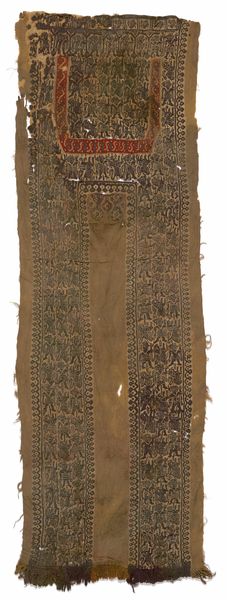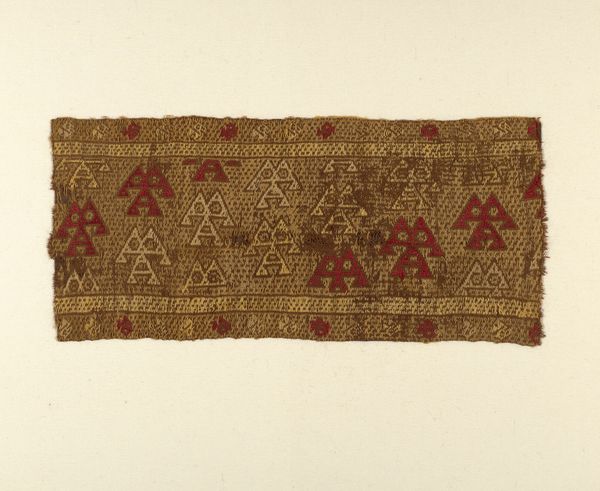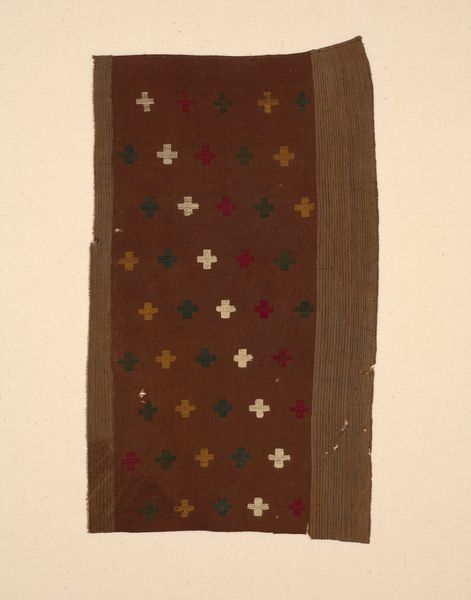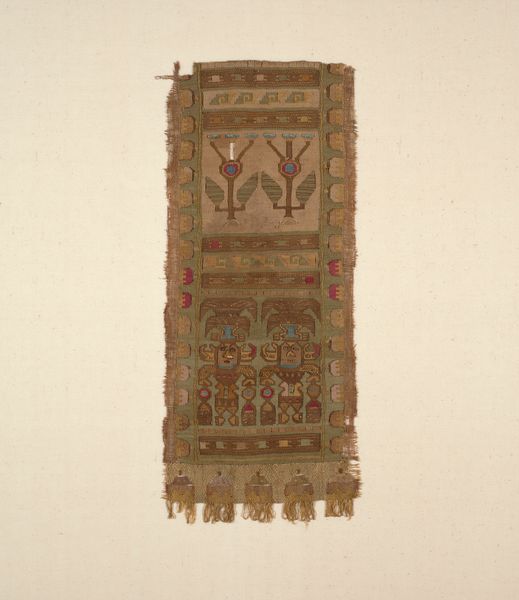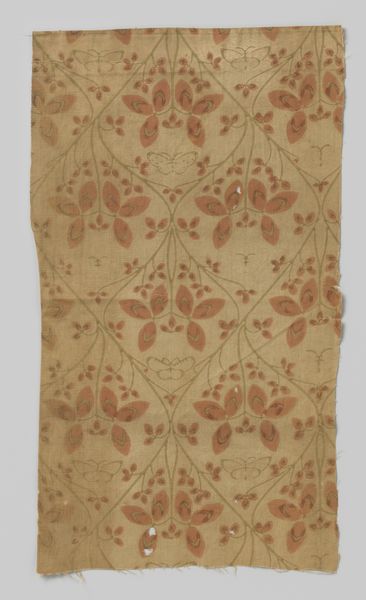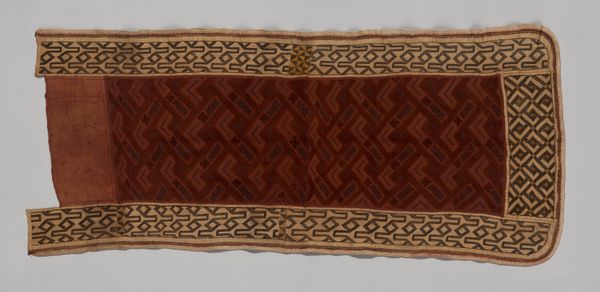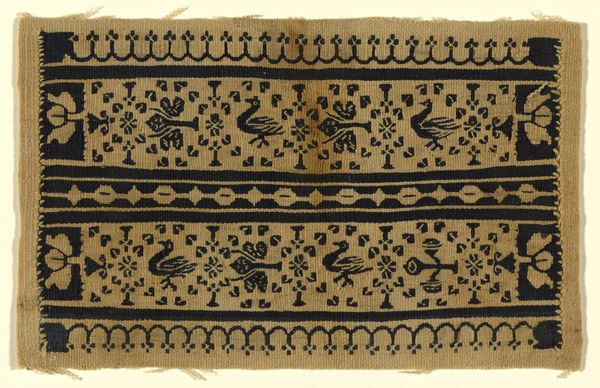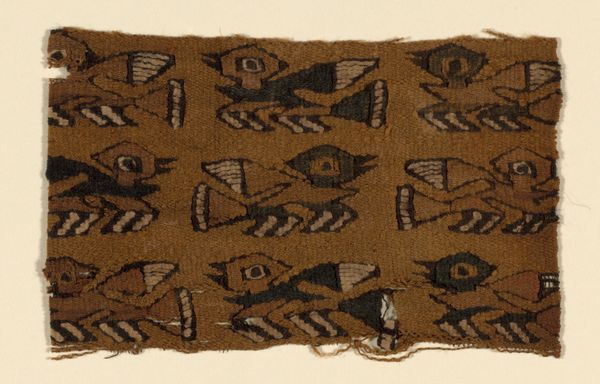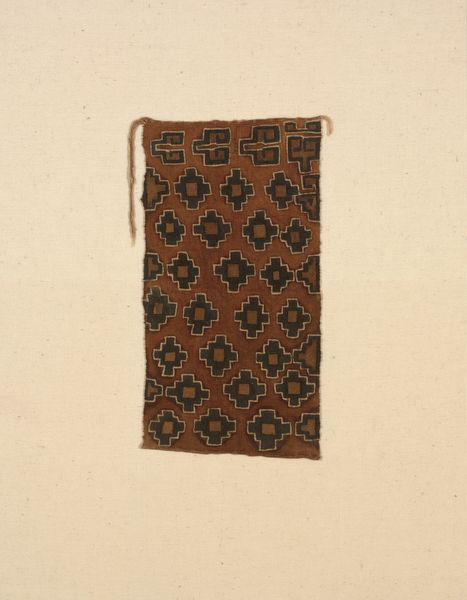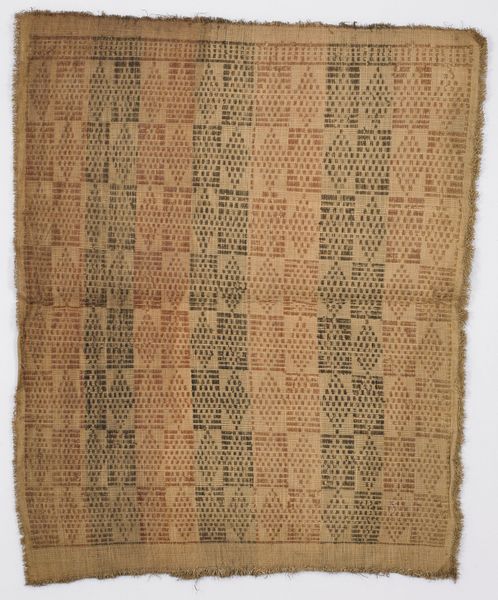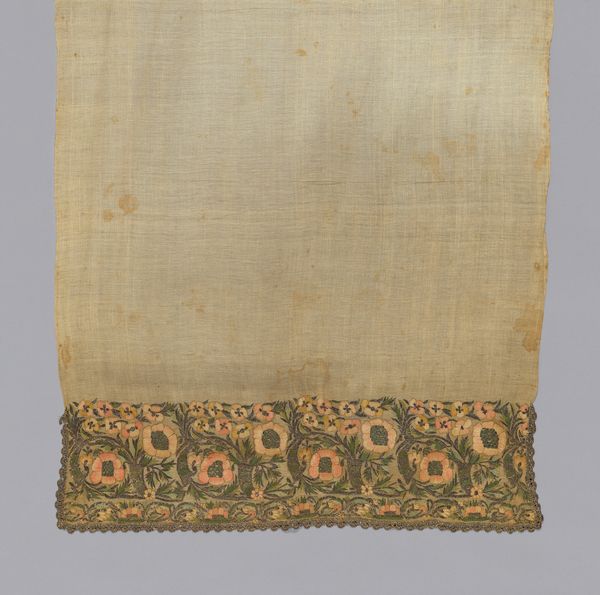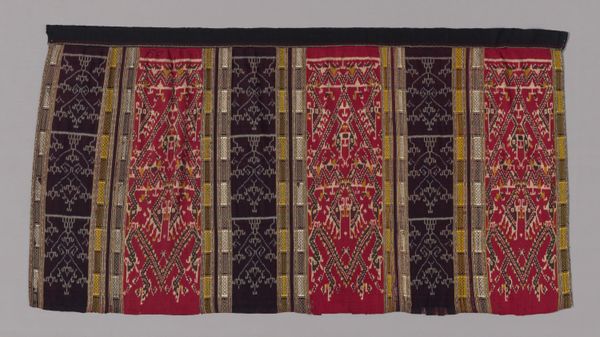
weaving, textile
#
pattern
#
weaving
#
textile
#
indigenous-americas
Dimensions: 65.4 × 27 cm (25 3/4 × 10 5/8 in.)
Copyright: Public Domain
This textile fragment was made by the Lambayeque people, on the north coast of Peru. Though we don't know precisely when it was made, the culture flourished between 750 and 1375 AD. The cloth, made of woven cotton, offers a glimpse into Lambayeque society. Its creation demanded expertise in growing and spinning cotton, and proficiency in setting up a loom. Laborious natural dyeing processes brought these textiles to life. This fragment also signals complex social dynamics. The motifs may have had symbolic meanings, perhaps signifying status or religious beliefs. The amount of labor invested in the production indicates that the textile served a special purpose, beyond mere utility. Considering the textile’s design, materials, and construction, allows us to imagine the society that brought it into being. It is a reminder that even a fragment can prompt reflection on skill, labor, and cultural values, enriching our understanding of pre-Columbian America.
Comments
No comments
Be the first to comment and join the conversation on the ultimate creative platform.
